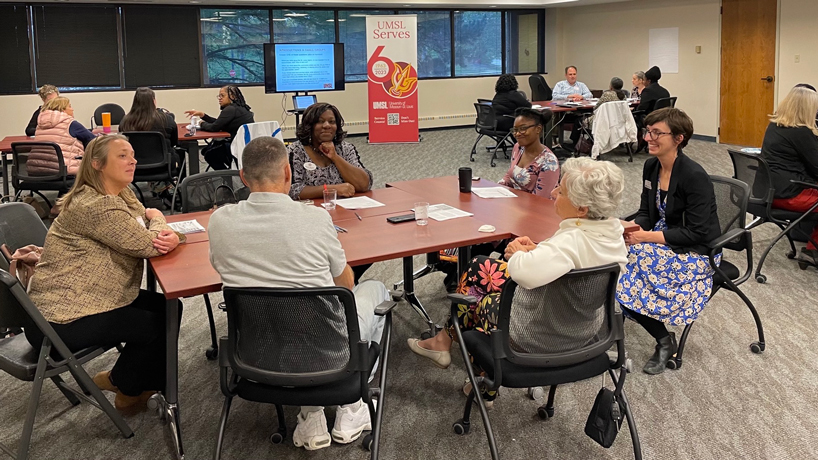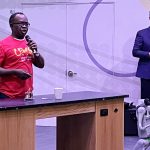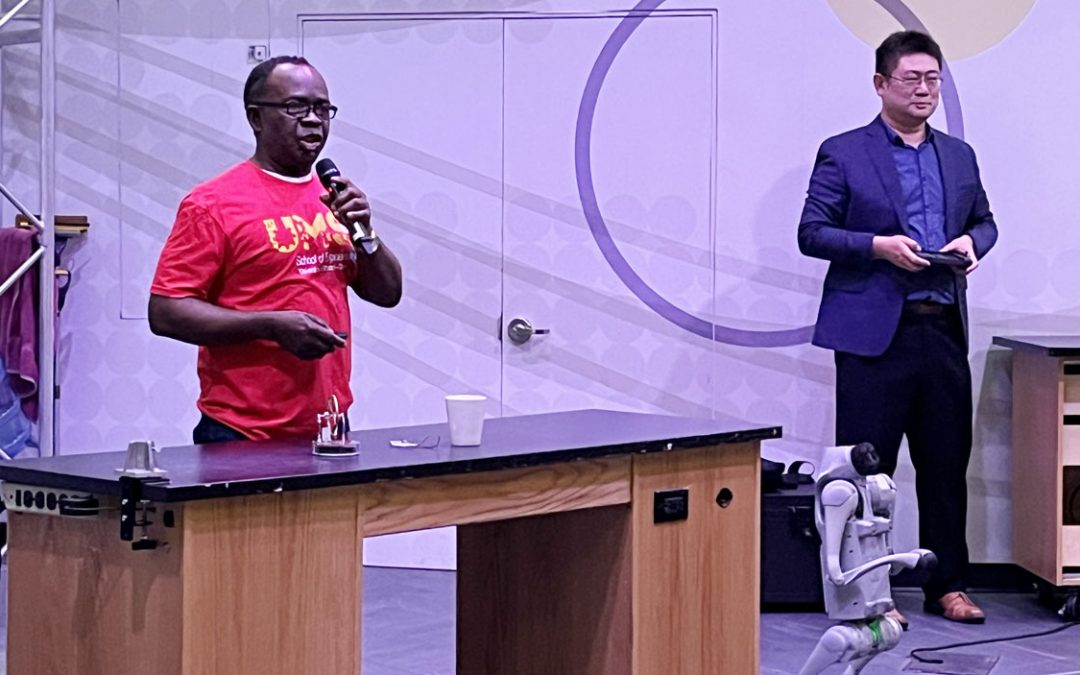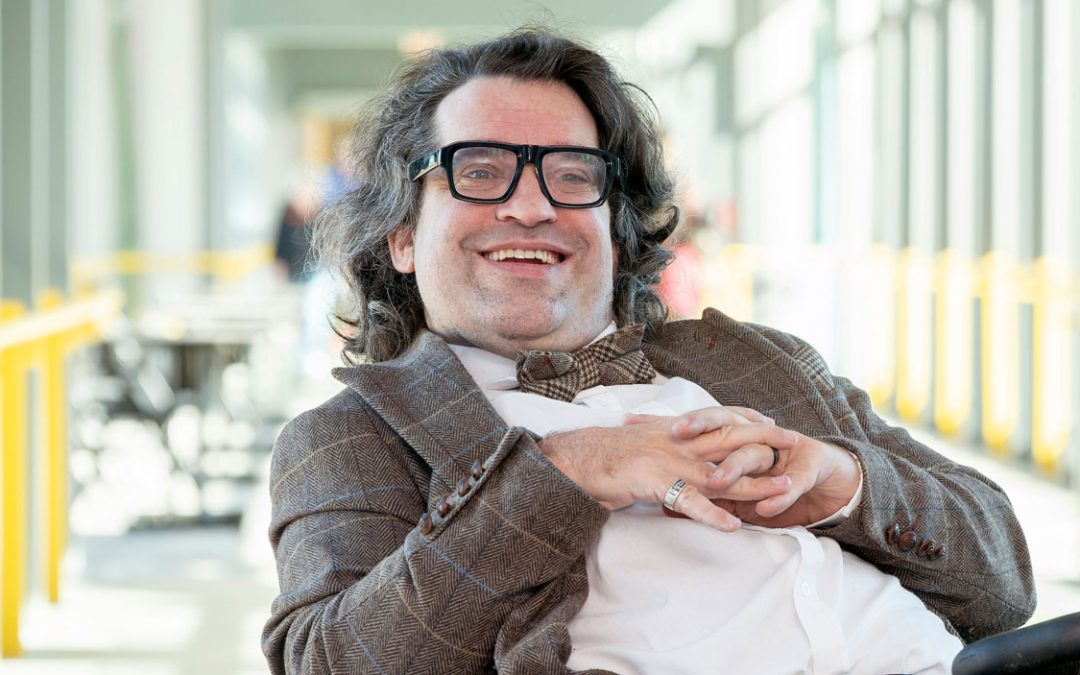
Small groups engage in deliberative discussions about economic vitality during the first UMSL Forum for Community Dialogue, held last Thursday evening at the Regional Center for Education and Work. (Photo courtesy of Patricia Zahn)
The divisions in American society have become stark in recent years and appear to be growing. People are sorting themselves culturally and geographically and living with like-minded neighbors. It’s increasingly rare to engage with differing ideas beyond the shouting that can occur on television or in public meetings.
The University of Missouri–St. Louis is hoping to help people break through that noise and contentiousness. Last week, it hosted the first of what organizers hope will be a series of events designed to spur honest and open discussion of differing viewpoints on topics that have the potential to impact everyone.
The first UMSL Forum for Community Dialogue focused on the topic of “Economic Vitality: How can we improve our communities?” More than two dozen people took part in the event last Thursday evening at the Regional Center for Education and Work on North Campus.
“The diversity of people at the tables was so important,” said Patricia Zahn, UMSL’s director of community outreach and engagement. “We had people there from nonprofit, we had business people, we had real estate people, we had people in community development. There were a lot of different people attracted to this event.”
Zahn and Marlo Goldstein Hode, the director of conflict resolution and mediation services, helped organize the event with other partners.
The forum used the National Issues Forums Institute model of deliberative dialogue, which relies on guided conversations on political or controversial topics and asks participants to gather in small groups to investigate specific solutions to issues with the help of a facilitator.
With volunteer facilitators guiding the conversation, the groups talked about different scenarios and discussed which would be most important for ensuring the economic vitality of the region. The first was to make the community attractive to good and stable employers. The second focused on preparing workers and communities to be more self-reliant. The third option was to provide everyone in the community with opportunities for success.
There was no right answer, and in fact, among the four small groups that participated, each option was chosen at least once.
No matter which option they selected, the process of actively listening to each other and engaging in dialogue – not debate – was meant to lead to greater understanding and some potential solutions.
“We are living in times where people do not really engage that often with people who have differing perspectives on how to resolve our problems,” Hode said. “Maybe there’s an idea that you don’t agree with when you first hear it. You don’t think that’s the right one, but maybe through this process, you may still not agree with it, but you can at least see the value in it and understand that all of these options have tradeoffs.
“The tradeoffs that you’re willing to accept might be different than somebody else because of different perspectives, lived experiences, values. But the process is really the key driver of this initiative.”
Hode first got the idea for the series after attending a webinar on deliberative dialogue hosted by Campus Compact in 2021. It has stayed with her, and earlier this year, she began coordinating with Zahn to put the idea into practice. They worked in collaboration with UMSL’s Office of Economic and Community Development, Creating Whole Communities and the University of Missouri Extension as they tried to engage the wider community.
“In order for things to be successful, it really has to be collaborative on our campus, so different departments, different people stepping up to come together and say, ‘OK, how can we do this?’” Zahn said. “Who’s our target audience? How do we include people? How do we make sure that they get informed about it? We can really think about our communities and how we show up as informed citizens. I think that deliberative dialogue really is about that.”
They chose to make economic issues the focus of the first dialogue because they wanted a topic that would draw broad interest, both on campus and in the community. But they plan to explore other ideas in future gatherings and expect to hold the next community dialogue during the spring semester.
Hode and Zahn encourage people to fill out this questionnaire to share their interest, availability and ideas for future installments of the series.














